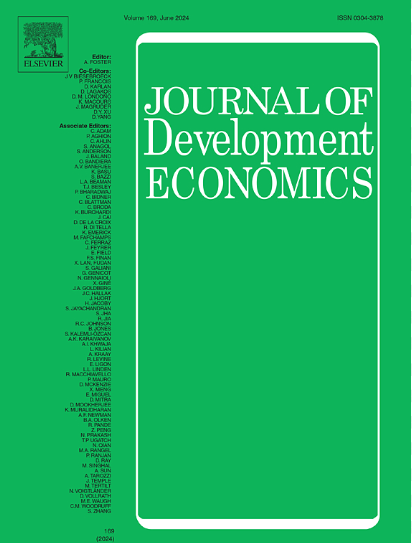劳动力市场中的匹配摩擦有多重要?来自一家印度大型企业的实验和非实验证据
IF 5.1
1区 经济学
Q1 ECONOMICS
引用次数: 0
摘要
本文提供了印度劳动力市场匹配摩擦的证据。我们使用多种方法来了解求职者对工作的真实偏好,结果表明(a) 求职者对相同工作的偏好存在很大差异;(b) 负责为求职者安排工作的安置官员对此知之甚少。即使考虑到求职者之间工作岗位的重新分配,向就业指导人员提供这些信息也能改善求职者的面试匹配情况。经过培训的求职者在短期内(3 个月)获得了更多心仪的工作,并留住了这些工作,但在长期内(6 个月)则不然。本文章由计算机程序翻译,如有差异,请以英文原文为准。
How important are matching frictions in the labor market? Experimental & non-experimental evidence from a large Indian firm
This paper provides evidence of matching frictions in the Indian labor market. Using several methods to elicit genuine preferences of job-seekers over jobs, we show that: (a) there is substantial variation in job-seekers preferences over the same jobs; and (b) placement officers, responsible for placing job-seekers in jobs, have poor knowledge of it. Providing placement offers with this information improves matching of job-seekers to interviews, even after taking into account redistribution of jobs across job-seekers. Treated job-seekers get more preferred jobs and retain them in the short run (three months), but not in the longer run (six months).
求助全文
通过发布文献求助,成功后即可免费获取论文全文。
去求助
来源期刊

Journal of Development Economics
ECONOMICS-
CiteScore
8.30
自引率
4.00%
发文量
126
审稿时长
72 days
期刊介绍:
The Journal of Development Economics publishes papers relating to all aspects of economic development - from immediate policy concerns to structural problems of underdevelopment. The emphasis is on quantitative or analytical work, which is relevant as well as intellectually stimulating.
 求助内容:
求助内容: 应助结果提醒方式:
应助结果提醒方式:


